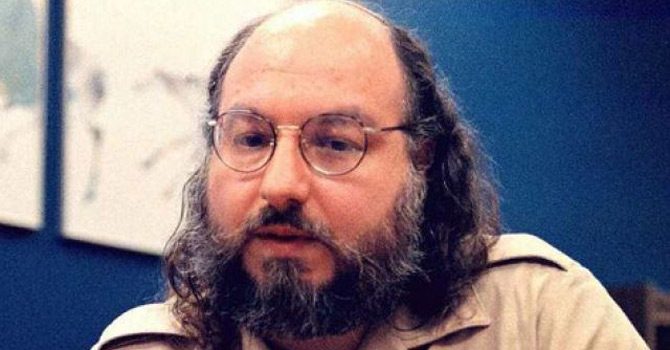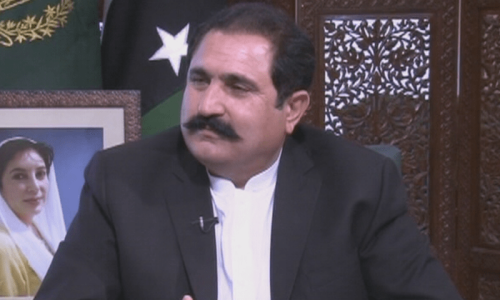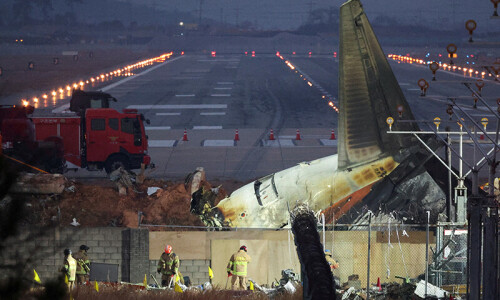WASHINGTON: One of the major tasks of Jonathan Pollard, an Israeli spy in the United States, was to collect information about Pakistan’s nuclear programme, according to a document released this week.
In 1984 and 1985, Mr Pollard passed on to his Israeli handlers several sets of official US documents about the Kahuta plant.
Mr Pollard, although an American citizen, spied for Israel while working for the US Navy’s intelligence service. In 1987, he was sentenced to life in prison for spying but can be released on parole on Nov 21, 2015.
Last week the CIA released a classified document — “The Jonathan Jay Pollard Espionage Case: A Damage Assessment” — it had prepared on Oct 30, 1987.
The document, declassified on an appeal by the George Washington University’s National Security Archive project, contains previously classified information about Mr Pollard’s activities as an Israeli mole in the US intelligence system. The archive is a non-profit organisation working to reduce secrecy in the US government.
In a testimony to the trial court, former US defence secretary Caspar Weinberger said the documents Mr Pollard provided to the Israelis could fill a 6’x6’x10’ space.
The CIA document showed that Mr Pollard focused on “Arab (and Pakistani) nuclear intelligence; Arab exotic weaponry, including chemical weapons; Soviet aircraft; Soviet air defences; Soviet air-to-air missiles and air-to-surface missiles; and Arab order-of-battle, deployments, readiness”.
In a section titled “Implications of Compromises — What Israel Gained from Pollard’s Espionage”, the document reveals that “Mr Pollard’s stolen material, from the Israeli perspective, provided significant benefits [redacted] …. Page 59, [redacted] Pollard’s deliveries concerning PLO headquarters near Tunis, Tunisian and Libyan air defences, and Pakistan’s plutonium reprocessing facility near Islamabad”.
Israel used this information to attack the PLO headquarters in Tunis in Oct 1985.
There are 10 references to Pakistan and its nuclear facilities in the document but details have been erased from the copy posted on the archive’s website.
At one place, the CIA says that “political and economic intelligence was deemed less valuable than military and technical material” about all Middle Eastern countries, which one of Mr Pollard’s handlers, Yagur, defined as “ranging from Morocco to Pakistan and from Lebanon to Yemen.”
Some pages also contained information about the Afghan war and Pakistan’s role in that war.
Although the CIA document does not reveal what the Americans knew about Pakistan’s nuclear programme, other recently declassified documents, posted on the same website do.
The records show that by 1980s the Americans knew that Pakistan had a fairly advanced nuclear programme, but Islamabad’s support for the US-led war against the Soviets in Afghanistan prevented them from taking any major action against the Pakistanis.
In July 1982, the Reagan administration sent former CIA deputy director Gen Vernon Walters to meet Gen Muhammad Ziaul Haq with US intelligence reports about “an upswing of clandestine Pakistani efforts” to procure nuclear weapons. Confronted with the evidence, Gen Zia acknowledged that the information “must be true”, but restated earlier promises not to develop a nuclear weapon and made pledges to avoid specific nuclear “firebreaks”.
In 1986, Arms Control and Disarmament Agency director Kenneth Adelman also warned the White House that Pakistan was secretly enhancing its nuclear capability, but “top levels of the US government let relations with a friendly government supersede non-proliferation goals as long as there was no public controversy”.
One document claims that the Reagan administration did not even want the Pakistanis to share their secrets with them because they “feared that … the ‘truth’ would have made it impossible for them to certify to Congress that Pakistan was not developing nuclear weapons”.
And on that certification “rode the continued flow of aid to assist the Afghanistan resistance,” the document adds.
The records suggest that “lack of trust and confidence was an important element in the US-Pakistan relationship, as it is today”.
By the early summer of 1981, State Department intelligence estimated that the Pakistanis were “probably capable of producing a workable device at this time,” although the Kahuta enrichment plant was unlikely to produce enough fissile material for a test until 1983.
But in December 1982, Secretary of State George Shultz warned President Reagan of the “overwhelming evidence that Gen Zia has been breaking his assurances” of not making a nuclear weapon.
In the spring of 1987, senior State Department officials wrote that Pakistani nuclear development activities were proceeding apace and that General Zia was approaching a “threshold which he cannot cross without blatantly violating his pledge not to embarrass the President”.














































